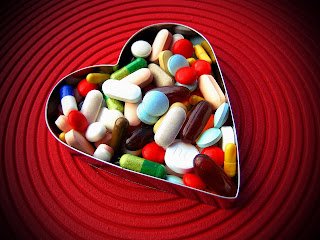According to my years of clinical experiences, many patients often ask me several questions, which often perplex me, so today I will share with all of you:
1 Can the kidney disease get a radical cure? No more relapse?
This is the top one question that almost all the patients and their family members will ask.
Is there any problem for this question? Of course YES! Because I do not know how to answer exactly……
Can the kidney disease get a radical cure?
Can you tell me what can be called a radical cure for you? As long as the kidney exists in your body, the it is possible for him to get damages, and as long as the kidney disease get any damages, the kidney disease will appear.
So now can you answer me that can the kidney disease get a radical cure?
Will the kidney disease get relapse after the treatment?
My answer is of course yes. Not only for the kidney disease, but also for the common disease cold, no one doctor dare to promise you that, it will mot relapse any more. Right?
2 Can the kidney disease get a complete recovery by taking *** medicines?(Which foods are good for kidney disease?/ What I should eat to cure my kidney disease?)
This is also a common question heard from the patients and what they often ask is about the fruits, tea or other foods.(Some people even ask me whether I can eat bread or rice.)
I can understand that you have this doubt. After all be carful is necessary once you have the kidney disease. So here I give you a conclude answer: you can eat most of the foods but the number should be less.
Will the diet influence the body health? Yes, it is certainly will, but this will happen only on the condition that some one eat something in a large number and keep for a long time.
For example, some years ago there is a saying: eating tomatoes can prevent the attack of cancer so one expert has take a research about this, and his result is that, if you want to prevent the attack of cancer, you need to eat at least 2 kg/day, and you need keep eating each day no pause.
So is there any body will do like this? May be yes, but I guess that person will not be you. It is really a hard thing for us!
So do not feel confused about the diet, the kidney disease patients only need to keep a diet with light taste and less salt for each meal.
3 My disease is under control by taking the medical hormones so will the Chinese medicines be effective for my disease?
Here I need to correct a misunderstanding: control does not equal to cure.
Do you know the function of the medical hormone for kidney disease? The function of this hormone is to reduce the permeability of kidney cells, which can prevent the leakage of protein forcedly. So the result after taking the medical hormone is the quick changing of positive protein to negative protein. But the function of hormone will not exist all the time, the kidney disease will get relapse once you stop the taking of medical hormone.
So someone put forward that, we can keep taking the medical hormone without cause, then the kidney disease will not get relapse any more.
But have you forgot the ‘medicines resistance’? So the medical hormone also cannot only solve the kidney disease totally, but also will cause many side effects.
So how about the TCM treatment for kidney disease? How does the TCM treatment work for the kidney disease?
In the final analysis, the function of TCM treatment is promoting blood circulation and removing blood stasis.
There are two groups of blood capillary in our kidneys, which have a important function of filtration. The blood in our whole body need to run through the kidney for over 50 times per day, so once the blood has the symptom of silting up, what will happen? So the theory of Chinese medicines treatment is to solve the problem of silting up, which is the fundamental method for solving the kidney disease totally.
Once the problem of silting up in blood is solved, the blood circulation comes to the normal condition, the enough nutrition will be able to reach to the kidney and other organs successfully. And when all the harmful things in blood are removed out from body, your kidney disease will get a good recovery gradually.
Here is a typical case of one kidney disease patient, he is a uremia patient with a high creatinine of 967, and he has not taken any medical hormones, no dialysis, only taking the Chinese herbs for a systematic treatment, finally his creatinine has decreased to 200 and his kidney disease is controlled in a very stable condition. Now he is able to walk outside to enjoy the sunshine and chat with his friends.













